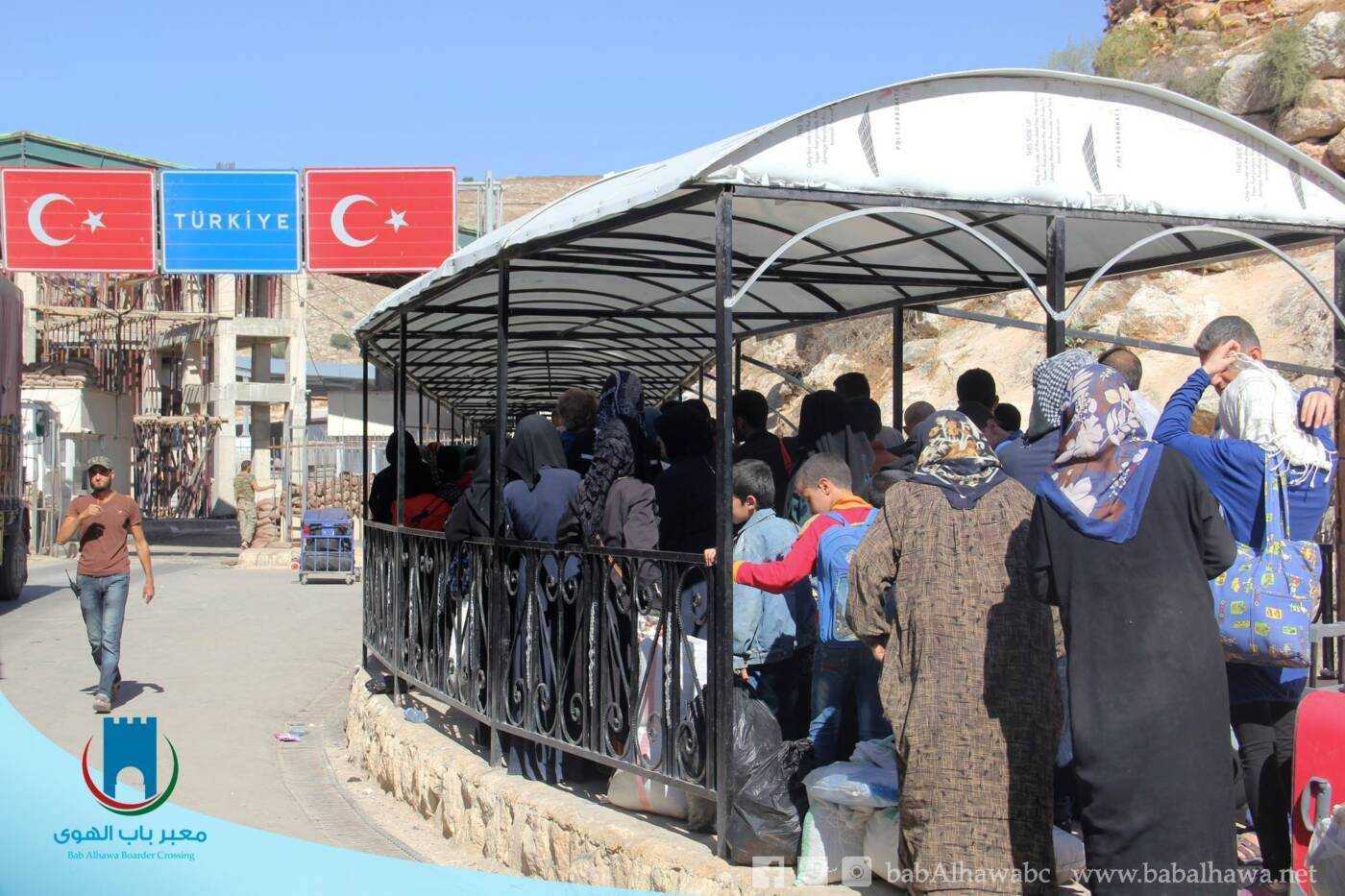Turkey sets daily quota for medical treatment, thousands of Syrians left waiting
AMMAN: Thousands of Syrians are “shut off” from medical treatment […]
30 May 2017
AMMAN: Thousands of Syrians are “shut off” from medical treatment after Turkish authorities began enforcing a quota earlier this month, allowing only five “non-emergency” patients across the border each day for care, sources in Idlib province tell Syria Direct.
As many as 3,000 cancer, heart disease and kidney failure patients are now literally waiting at the border for treatment, Ahmad Abu a-Reik, an administrator in the Bab al-Hawa border crossing’s hospital told Syria Direct on Tuesday. Bab al-Hawa is the only open border point between Syria’s Idlib province and Turkey.
Under the new Turkish policy, it would take at least 85 weeks—or almost a year and a half—for all 3,000 current patients to be able to leave Syria for treatment.
It is unclear who exactly is now in charge of determining which five patients are allowed through the border per day, but the hospital a-Reik helps run is the last stop for thousands of people with “non-emergency” illnesses such as cancer, kidney failure and heart disease. There, medical staff treat and diagnose patients on Syrian soil before deciding whether to transfer them to larger facilities in Turkey for more comprehensive care, including chemotherapy and heart catheters.
With no hospitals equipped to treat the seriously ill at home in Syria’s embattled, rebel-controlled Idlib province, patients rely on the Bab al-Hawa border crossing to reach facilities across the border in Turkey.
Before the five-patient quota, an estimated “60 Idlib residents per day” would cross into Turkey, a-Reik said.
But on May 18, Turkish authorities reportedly imposed a limit of five non-emergency patients per day to enter for treatment, a-Reik said—meaning that anyone in need of life-saving care across the border in Turkey’s Hatay province is added to a backlog of around 3,000 other people awaiting their chance to travel through the Bab al-Hawa crossing.
Turkish media did not report the newly imposed quota. An official website affiliated with the Bab al-Hawa crossing, which is controlled on the Syrian side by the Islamist armed group Ahrar a-Sham and releases new border policies on a regular basis, also did not share news of the new limit.

The lack of any type of announcement makes the exact reasoning for the decree unclear, though a-Reik says the main reason cited by Turkish authorities behind the scenes was “sick people and those accompanying them failing to come back home to Syria after receiving treatment.”
“Nobody returns except for a small number [of patients],” he added. Syria Direct could not independently verify the hospital administrator’s claim.
The decision to allow just five non-emergency patients through the border daily reverses a short-lived decree released last month by Turkish authorities to halt the crossings “completely,” said Abd a-Razzaq Khalil, a spokesman with Idlib’s health department.
Bab al-Hawa’s official website announced the temporary closure policy on April 20, informing potential travelers that the crossing would be “closed from the Turkish side for people in need of non-emergency medical treatment, until further notice.”
The decision contradicted a brochure released by the crossing’s authorities in March. It details the steps for receiving approval to travel to Turkey for medical care, “if the appropriate treatments or procedures are not available” in neighboring Idlib province.
Treatment for cancer and other deadly diseases are indeed unavailable across Idlib, the opposition-held province’s spokesman Khalil told Syria Direct. He describes the aftermath of the new quota as a “huge storm,” as Idlib’s worn-down, bombed-out hospitals are “incapable of providing [seriously ill patients] with anything.”
Last month, Syrian government forces and its allies carried out 24 “systematic and targeted” attacks on hospitals and healthcare facilities across Idlib province, “killing 10 healthcare workers and injuring 16,” the Syrian American Medical Society announced in a recent statement.
Today, Idlib’s healthcare system is bombed virtually out of service and unable to treat patients in need of complicated procedures, Idlib residents told Syria Direct.
Among them is 29-year-old Ahmad Abd al-Alim, a barber from Damascus now living in Idlib city with his two children. His daughter, nine-year-old Raghad, has tuberculosis from drinking contaminated water. Eight-year-old Ali, his son, suffers from tetraplegia, with sensory and motor loss in all four of his limbs, and needs “intense physical therapy sessions,” al-Alim told Syria Direct.
With limited supplies, doctors in Idlib could do nothing for al-Alim’s children. So he travelled 30km north to the Bab al-Hawa crossing last Monday, four days after the new quota was established, in an attempt to find treatment for Raghad and Ali in Turkey.
Ultimately, border authorities rejected him, he said, reportedly telling al-Alim to “wait until the patient is half an hour or an hour from their death” to be let through.
One resident of Idlib province named Anas, who lives in the village of Azmarin just along the Turkish border, faced a similar experience when the quota meant his aging father could likely never receive treatment for his heart disease.
Anas’s father, who needs a cardiac catheterization procedure, previously would have qualified for entry into Turkey. But the decision on April 20 to completely halt all non-emergency medical entries, and then in May to allow only five per day through Bab al-Hawa, was “exhausting,” Anas said.
With a long list of patients waiting for acceptance into Turkey, his father’s turn will likely not come soon.
“There is no available treatment for my father here,” Anas added, referring to Idlib province. His father’s last medical checkup was at Bab al-Hawa’s hospital in May, where a doctor simply advised Anas to give his father “more meals and less food per meal.”
Anas’s father is currently suffering from chest pain, intense shortness of breath and heart pain, his son says.
“How can I possibly describe the pain of watching my father die right in front of me, while I can’t do anything to help him?”







